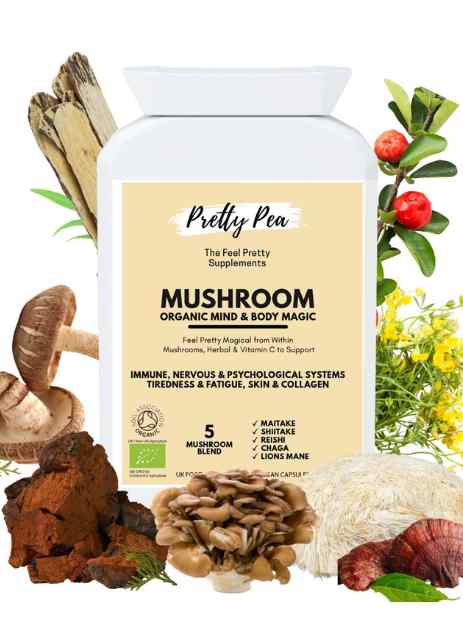
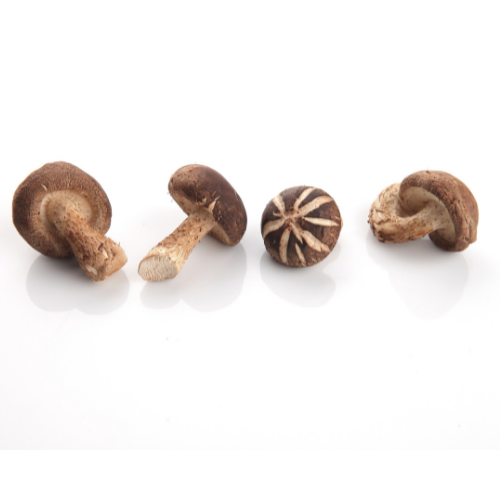

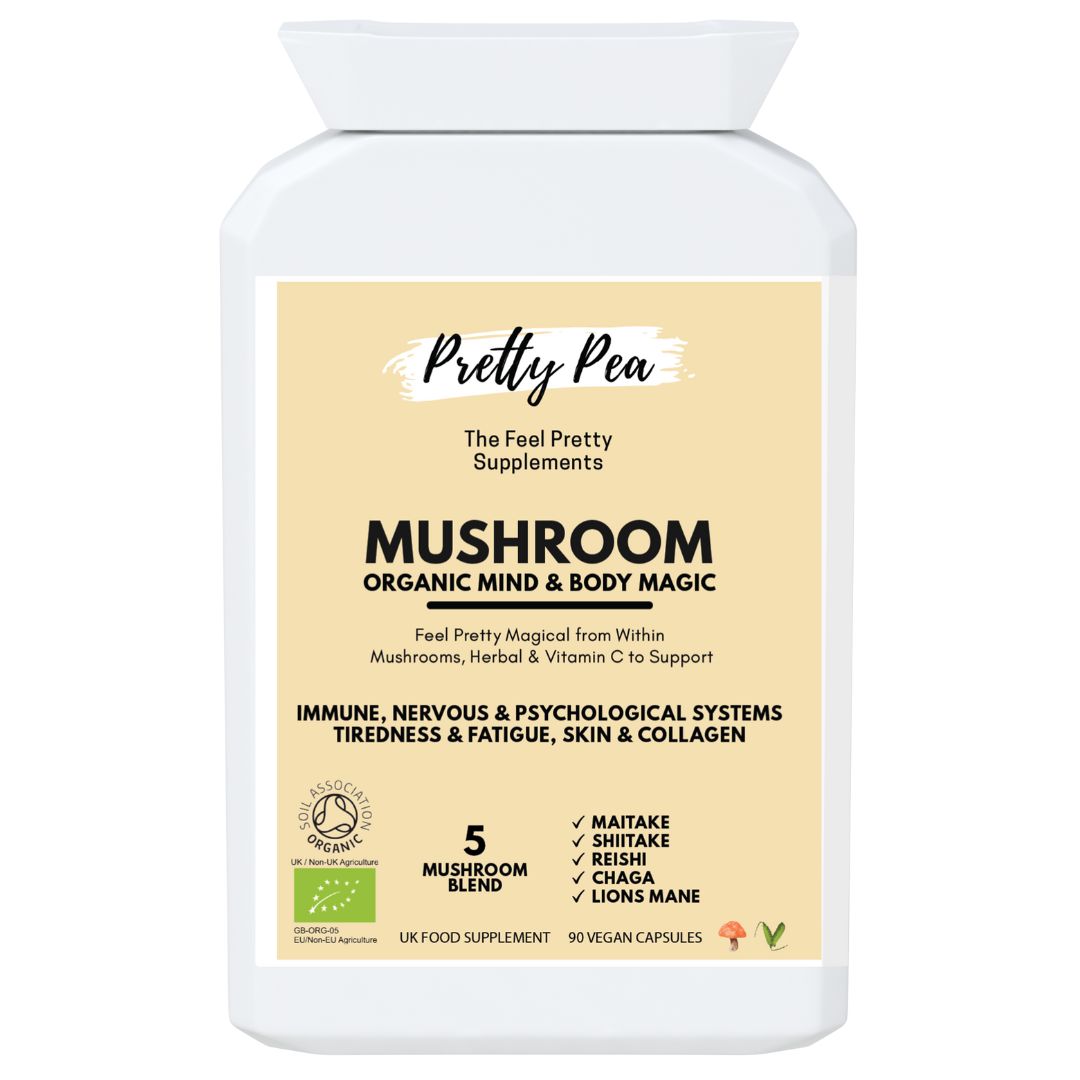
Mushroom Supplement
Mushroom Supplement with Acerola Cherry Vitamin C
£25.99
Mushroom supplement blend with Organic Reishi, Lions Mane, Maitake, Shiitake & Chaga Mushroom magic with added Herbals & food form Acerola Cherry Vitamin C to contribute to normal:
Immune Function
Nervous System
Psychological Function
Skin & Collagen
Reduce Tiredness & Fatigue
Plus Piperine for Optimum Nutrient Absorption
ZEN Ashwagandha supplements
I’ve ben taking these supplements for about 5 weeks and I can definitely tell the difference. I am going through the menopause and I noticed that my mental focus and clarity improved in the first couple of weeks – less foggy! I’ve also noticed that overall I feel calmer, more balanced and less bloated.


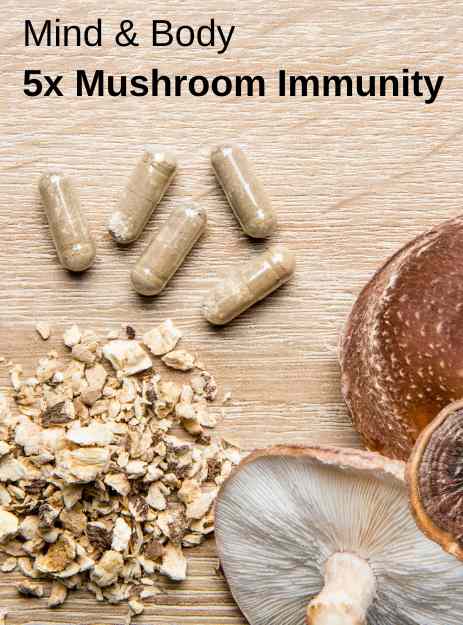
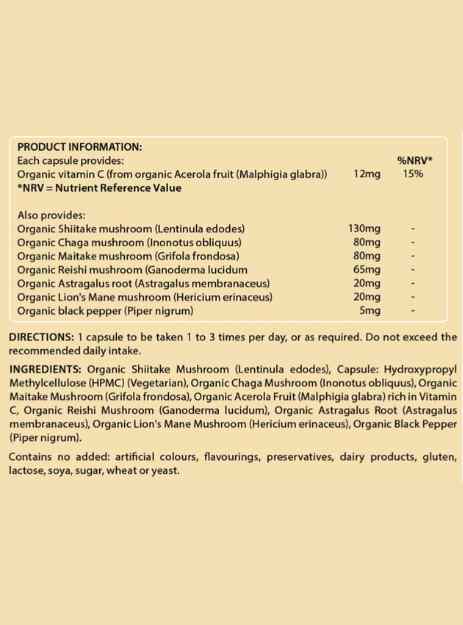
FEELING PRETTY RESILIENT STARTS FROM WITHIN
Immunity, Psychological & Nervous System Support
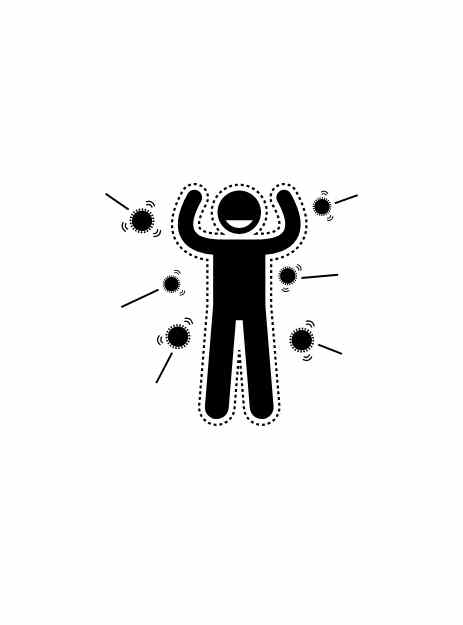
Immune Support
Vitamin C contributes to Immune Function
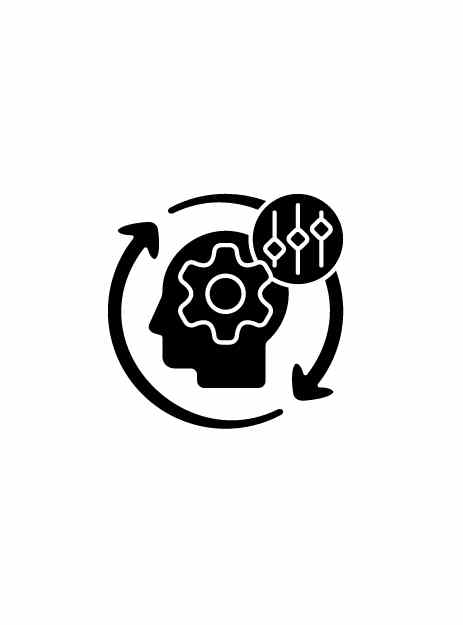
Resilience
Vitamin C contributes to normal Nervous & Psychological function

Energy Levels
Vitamin C Reduce Tiredness & Fatigue

Optimise Absorption
Added Piperine for Increased Absorption & Bioavailability